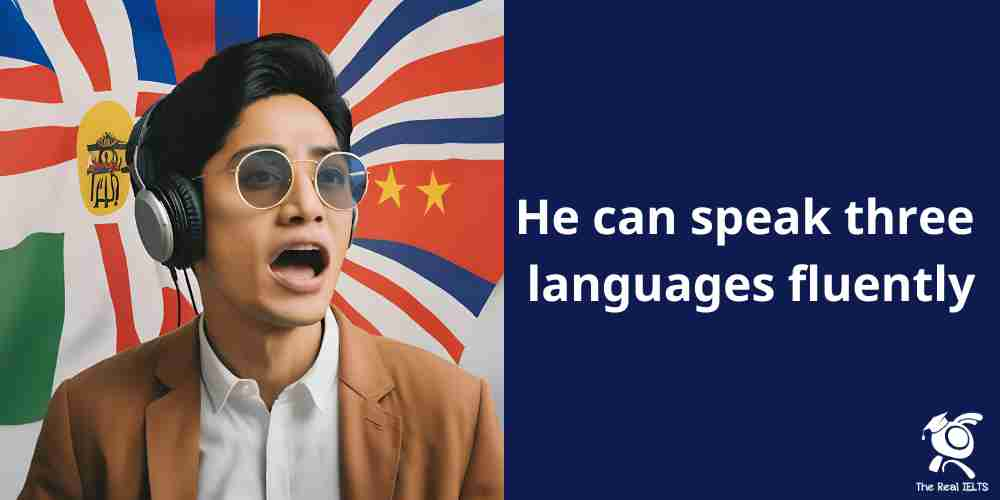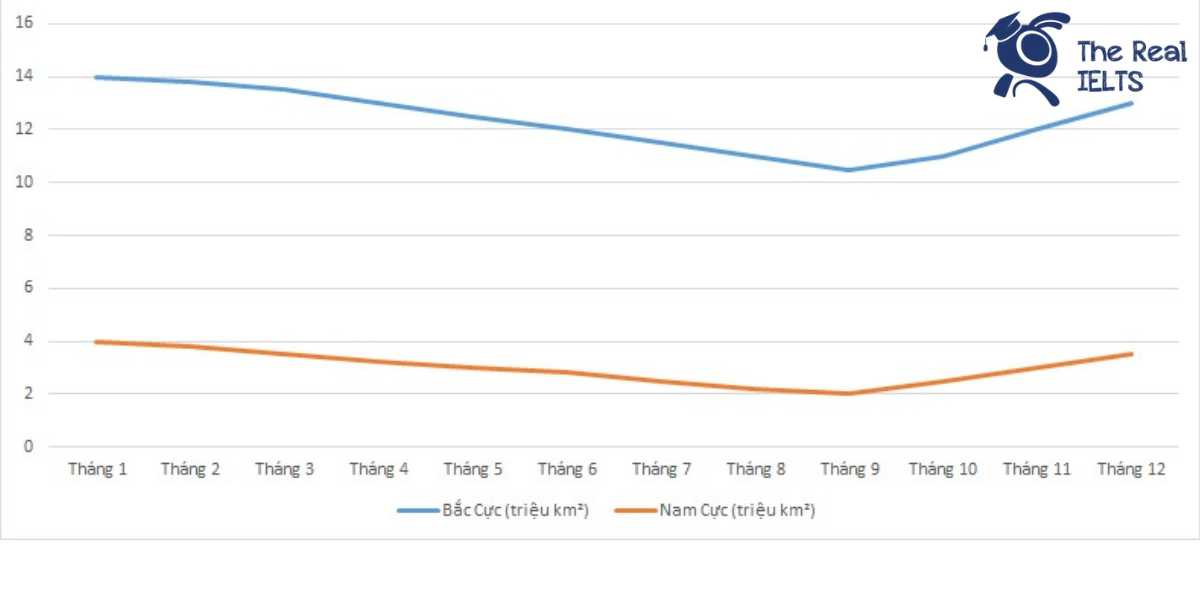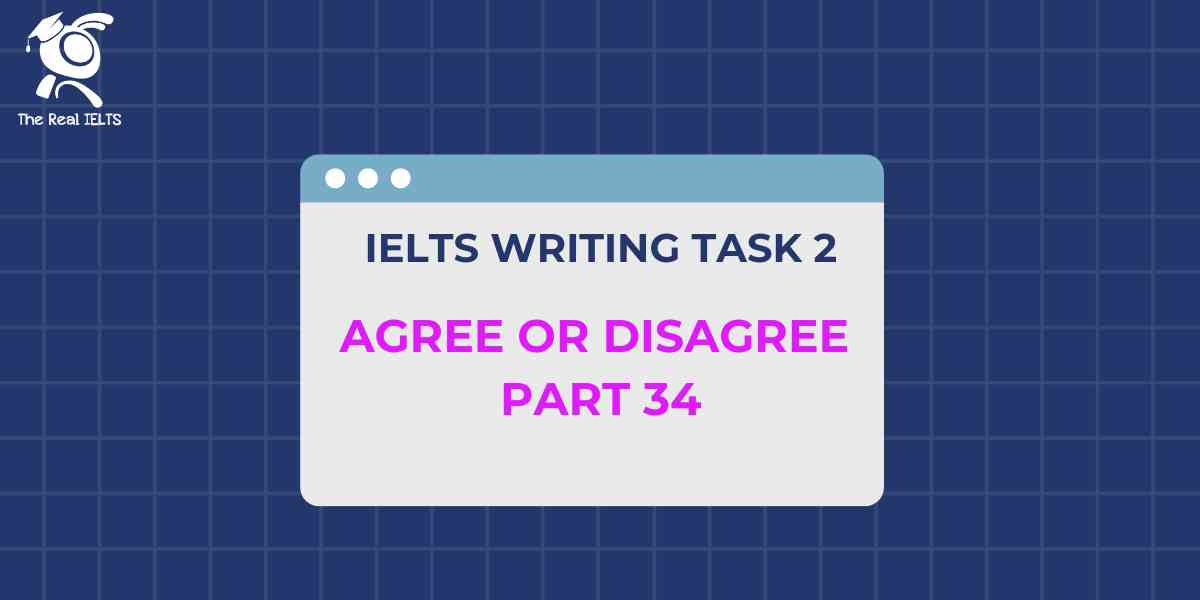Động từ khuyết thiếu (Modal Verbs) là một nhóm động từ đặc biệt trong tiếng Anh, được sử dụng để diễn đạt khả năng, yêu cầu, ý kiến hoặc sự chắc chắn. Các động từ khuyết thiếu phổ biến nhất bao gồm: can, could, may, might, must, shall, should, will, would.
Học bài cũ: (Auxiliary Verbs) Trợ động từ và 100 bài tập.
Bài viết liên quan: 100 câu luyện tập Modal Verbs Drills.
Đặc điểm của động từ khuyết thiếu
Động từ khuyết thiếu là một nhóm động từ đặc biệt trong tiếng Anh, mang những đặc điểm riêng biệt so với các động từ thông thường. Chúng được sử dụng phổ biến để diễn đạt khả năng, sự cho phép, nghĩa vụ hoặc lời khuyên. Trong bài viết này, chúng ta sẽ khám phá các đặc điểm nổi bật của động từ khuyết thiếu qua cách sử dụng, cấu trúc ngữ pháp và ý nghĩa của chúng.
1. Không chia theo ngôi và số
Động từ khuyết thiếu không thay đổi hình thức dựa trên chủ ngữ, dù là số ít hay số nhiều, ngôi thứ nhất, thứ hai hay thứ ba. Ví dụ, trong câu “I can swim” (Tôi có thể bơi) và “They can swim” (Họ có thể bơi), “can” giữ nguyên dạng. Điều này giúp việc sử dụng chúng trở nên đơn giản và dễ nhớ.
2. Theo sau bởi động từ nguyên mẫu
Một đặc điểm quan trọng của động từ khuyết thiếu là chúng luôn đi cùng động từ nguyên mẫu không có “to”. Chẳng hạn, ta nói “She must study” (Cô ấy phải học) chứ không phải “She must to study”. Quy tắc này áp dụng cho hầu hết các động từ khuyết thiếu như “can”, “could”, “must”, “shall”, “should”, “will”, “would”, “may” và “might”.
3. Không cần trợ động từ trong câu hỏi hoặc phủ định
Khi đặt câu hỏi hoặc phủ định, động từ khuyết thiếu không yêu cầu trợ động từ như “do” hay “does”. Thay vào đó, chúng tự đứng đầu câu hỏi hoặc kết hợp với “not” để phủ định. Ví dụ, “Can you help me?” (Bạn có thể giúp tôi không?) hoặc “I cannot go” (Tôi không thể đi). Cách dùng này rất gọn gàng và trực tiếp.
4. Mang ý nghĩa đặc thù
Mỗi động từ khuyết thiếu mang một ý nghĩa riêng, phụ thuộc vào ngữ cảnh. “Can” thể hiện khả năng hoặc sự cho phép, như “I can drive” (Tôi có thể lái xe). “Must” biểu thị sự bắt buộc, như “You must finish your homework” (Bạn phải hoàn thành bài tập). Trong khi đó, “should” dùng để đưa ra lời khuyên, như “You should rest” (Bạn nên nghỉ ngơi).
5. Không có dạng nguyên mẫu hoặc phân từ
Động từ khuyết thiếu không tồn tại ở dạng nguyên mẫu (infinitive), phân từ hiện tại (present participle) hay phân từ quá khứ (past participle). Ta không thể nói “to can”, “canning” hay “canned”. Điều này khác biệt hoàn toàn so với động từ thường, vốn có thể biến đổi linh hoạt qua các dạng.
6. Một số trường hợp có dạng quá khứ
Dù không chia theo thì như động từ thường, một số động từ khuyết thiếu có dạng tương ứng với quá khứ. Ví dụ, “can” có dạng quá khứ là “could”, “will” có dạng “would”, “shall” có “should”, và “may” có “might”. Chúng được dùng để diễn đạt ý nghĩa trong quá khứ, như “I could run fast when I was young” (Tôi có thể chạy nhanh khi còn trẻ).
7. Không sử dụng cùng lúc hai động từ khuyết thiếu
Trong một mệnh đề, ta không thể dùng hai động từ khuyết thiếu liên tiếp. Thay vào đó, người ta sử dụng các cụm từ tương đương. Chẳng hạn, thay vì nói “I can must go” (sai), ta nói “I have to go” (Tôi phải đi). Quy tắc này đảm bảo câu văn rõ ràng và đúng ngữ pháp.
8. Thể hiện mức độ chắc chắn hoặc khả năng
Động từ khuyết thiếu còn được dùng để diễn đạt mức độ chắc chắn hoặc khả năng xảy ra của một sự việc. “Might” và “may” thường biểu thị sự không chắc chắn, như “It might rain” (Trời có thể mưa). Ngược lại, “must” thể hiện sự chắc chắn logic, như “He must be tired after working all day” (Anh ấy chắc hẳn mệt sau khi làm việc cả ngày).
9. Tính chất bất biến trong văn nói và văn viết
Động từ khuyết thiếu giữ nguyên đặc điểm bất kể trong văn nói hay văn viết. Chúng phổ biến trong giao tiếp hàng ngày vì tính ngắn gọn và dễ hiểu. Ví dụ, “You should try this dish” (Bạn nên thử món này) là câu nói tự nhiên trong cả hai hình thức giao tiếp.
10. Vai trò trong câu điều kiện
Động từ khuyết thiếu đóng vai trò quan trọng trong câu điều kiện, đặc biệt với “would”, “could” và “might”. Chẳng hạn, “If I had time, I would travel” (Nếu tôi có thời gian, tôi sẽ đi du lịch). Chúng giúp diễn đạt các tình huống giả định hoặc không có thật một cách rõ ràng.
11. Sự khác biệt với động từ thường
So với động từ thường, động từ khuyết thiếu không cần chia thì phức tạp hay thêm đuôi “-s”, “-ed”. Điều này làm chúng nổi bật trong hệ thống ngữ pháp tiếng Anh. Ví dụ, trong khi “She walks” (Cô ấy đi bộ) cần “-s”, thì “She can walk” (Cô ấy có thể đi bộ) giữ nguyên “can”.
12. Ứng dụng thực tế trong giao tiếp
Nhờ tính linh hoạt, động từ khuyết thiếu xuất hiện trong nhiều tình huống thực tế. Chúng giúp người nói thể hiện thái độ, ý định hoặc yêu cầu một cách lịch sự. Chẳng hạn, “Could you please open the door?” (Bạn có thể mở cửa được không?) nghe nhẹ nhàng hơn “Open the door”.
13. Một số ngoại lệ và biến thể
Dù có quy tắc chung, một số động từ khuyết thiếu mang sắc thái đặc biệt. “Ought to” là trường hợp hiếm hoi đi với “to”, như “You ought to apologize” (Bạn nên xin lỗi). Ngoài ra, “need” đôi khi cũng được dùng như động từ khuyết thiếu trong câu phủ định, như “You needn’t worry” (Bạn không cần lo lắng).
14. Tầm quan trọng trong học tiếng Anh
Hiểu rõ đặc điểm của động từ khuyết thiếu rất quan trọng khi học tiếng Anh. Chúng không chỉ phổ biến mà còn ảnh hưởng đến cách diễn đạt ý tưởng. Việc nắm vững cách dùng giúp người học giao tiếp tự nhiên và chính xác hơn.
Động từ khuyết thiếu là một phần không thể thiếu trong tiếng Anh, với những đặc điểm độc đáo như không chia ngôi, đi với động từ nguyên mẫu, và mang ý nghĩa đa dạng. Chúng đơn giản hóa ngữ pháp nhưng vẫn giữ được sự phong phú trong cách diễn đạt. Việc sử dụng thành thạo động từ khuyết thiếu sẽ nâng cao khả năng ngôn ngữ của bạn.
Bài 1-50: Câu khẳng định
- She can swim very well.
- We should go to the doctor.
- They must finish their homework tonight.
- He could play the piano when he was five.
- I might visit my grandparents this weekend.
- You may leave early today.
- She will help you with your work.
- We would like some coffee, please.
- They ought to apologize for their behavior.
- He shall return by noon.
- I can speak three languages.
- She should study more for the test.
- We must wear uniforms at school.
- You could join us for dinner.
- They might buy a new house next year.
- I may borrow your book if you’re finished.
- She will arrive by 5 PM.
- We would go hiking if the weather was better.
- You ought to visit your family more often.
- He shall receive the award tomorrow.
- She can drive a car now.
- We should help each other more.
- They must submit the report by Friday.
- I could finish this project by tonight.
- He might cancel the meeting.
- You may go outside during the break.
- She will win the competition.
- We would love to come to your party.
- You ought to try this dish.
- He shall call you back soon.
- I can dance very well.
- She should exercise regularly.
- We must lock the door when we leave.
- They could solve the problem.
- I might take a day off tomorrow.
- You may ask the teacher for help.
- She will succeed in her career.
- We would travel more if we had more time.
- You ought to complete the task today.
- He shall not fail in his duty.
- I can play the guitar.
- She should learn to cook.
- We must leave early to catch the train.
- They could visit us this weekend.
- I might stay home today.
- You may attend the meeting if you like.
- She will finish her degree next year.
- We would have gone to the beach if it wasn’t raining.
- You ought to be more careful.
- He shall pay for his mistakes.


Bài 51-75: Câu phủ định
- She cannot swim very fast.
- We should not ignore the rules.
- They must not forget the deadline.
- He could not answer the question.
- I might not go to the party.
- You may not leave until the meeting ends.
- She will not agree with that decision.
- We would not accept such a proposal.
- They ought not to be rude.
- He shall not attend the event.
- I cannot believe what he said.
- She should not wear that dress to the party.
- We must not enter without permission.
- You could not have known about the surprise.
- They might not win the game.
- I may not have time tomorrow.
- She will not complete the assignment on time.
- We would not support this plan.
- You ought not to argue with your boss.
- He shall not be late again.
- I cannot remember where I put my keys.
- She should not spend so much money.
- We must not lose our focus.
- They could not find the solution.
- I might not finish my work today.
Bài 76-100: Câu nghi vấn
- Can she swim across the river?
- Should we call the police?
- Must they finish the project today?
- Could he speak Spanish fluently?
- Might I join the conversation?
- May we enter the room now?
- Will she attend the meeting tomorrow?
- Would you like some more coffee?
- Ought they to apologize for their mistake?
- Shall we start the presentation?
- Can I help you with your bags?
- Should she take the job offer?
- Must we leave now to catch the bus?
- Could you explain that again?
- Might he be late for the meeting?
- May I borrow your pen?
- Will they arrive on time?
- Would you mind if I open the window?
- Ought you to be doing that?
- Shall I bring you some water?
- Can you finish this by tomorrow?
- Should we wait for them before starting?
- Must I fill out this form?
- Could she help us with the presentation?
- Might we need more chairs for the event?
Cách sử dụng các động từ khuyết thiếu phổ biến
Can/Could
- Can: Diễn tả khả năng hiện tại hoặc yêu cầu.
- Ví dụ: She can play the guitar (Cô ấy có thể chơi guitar).
- Could: Diễn tả khả năng trong quá khứ hoặc sự lịch sự.
- Ví dụ: Could you help me with this? (Bạn có thể giúp tôi việc này không?)
Can – Diễn tả khả năng hiện tại hoặc yêu cầu


- He can speak three languages fluently.
- Can you open the window, please?
- They can solve the problem quickly.
- My sister can cook delicious meals.
- Can you help me with my homework?
- We can finish the project by tomorrow.
- She can swim across the river easily.
- Can you lend me your book for a day?
- I can read this book in one day.
- Can they join us for dinner tonight?
- John can drive a car, but he doesn’t have a license yet.
- Can I borrow your phone for a minute?
- The baby can crawl, but she can’t walk yet.
- Can you please send me the report?
- This software can process large amounts of data.
- Can we start the meeting now?
- He can play the piano really well.
- Can your brother pick us up from the airport?
- She can paint beautiful landscapes.
- Can you call me when you arrive?
- I can understand Spanish quite well.
- Can they arrive at 10 AM tomorrow?
- My mom can knit scarves and sweaters.
- Can you fix my bike today?
- They can organize the event next week.
- Can you recommend a good restaurant nearby?
- He can memorize facts very quickly.
- Can I have a glass of water, please?
- We can take the train instead of driving.
- Can you pass me the salt, please?
- She can dance gracefully at the party.
- Can the team submit the report by Friday?
- I can finish the task before noon.
- Can you turn off the lights when you leave?
- They can start the presentation now.
- Can your dog do any tricks?
- He can complete the assignment by himself.
- Can we leave the office early today?
- She can speak French better than her brother.
- Can you show me how to solve this problem?
- I can write a letter in Japanese.
- Can we postpone the meeting until tomorrow?
- They can deliver the package by the weekend.
- Can you tell me the time, please?
- He can easily lift heavy weights.
- Can I sit here next to you?
- She can play both the violin and the piano.
- Can we visit the museum this weekend?
- He can finish the race in under an hour.
- Can you help me set up this equipment?
Could – Diễn tả khả năng trong quá khứ hoặc sự lịch sự


- I could swim when I was a child.
- Could you pass me the bread, please?
- She could speak Italian when she lived in Rome.
- Could you tell me how to get to the station?
- He could run faster than anyone else in his class.
- Could you help me carry these bags?
- We could see the mountains from our hotel room.
- Could you give me a ride to the airport?
- They could play chess when they were younger.
- Could you lower your voice a little?
- She could sing beautifully when she was in the choir.
- Could you please explain that again?
- My father could repair any type of machine.
- Could you lend me some money until tomorrow?
- He could read before he started school.
- Could you close the door behind you, please?
- We could travel more before we had kids.
- Could you send me the documents by email?
- She could finish the entire book in one day.
- Could you open the window a little more?
- He could solve difficult math problems easily.
- Could you please not be so loud?
- I could ride a bike when I was five years old.
- Could you help me move this table?
- They could build a house in just three months.
- Could you bring me a glass of water?
- She could draw very well when she was younger.
- Could you pass me my glasses, please?
- He could fix computers when he worked in IT.
- Could you show me where the restroom is?
- We could stay up late when we were on vacation.
- Could you make me a cup of tea?
- He could speak fluent Spanish after living in Spain.
- Could you pick up the kids from school today?
- She could solve puzzles quickly when she was a child.
- Could you reserve a table for us at the restaurant?
- I could read the map even though it was in a different language.
- Could you write down your phone number for me?
- They could travel freely before the restrictions.
- Could you tell me your name again?
- He could fix his bike without any help.
- Could you hand me that book, please?
- She could bake the best cookies in the neighborhood.
- Could you call me when you arrive at the station?
- We could play outside all day during the summer.
- Could you please keep an eye on my bag for a moment?
- He could play soccer really well when he was in school.
- Could you print these documents for me?
- She could draw amazing portraits when she was a student.
- Could you kindly hold the door for me?
May/Might
- May: Diễn tả sự cho phép hoặc khả năng xảy ra.
- Ví dụ: May I come in? (Tôi có thể vào không?)
- Might: Dùng để nói về khả năng trong tương lai, nhưng ít chắc chắn hơn.
- Ví dụ: It might rain tomorrow (Có thể ngày mai trời sẽ mưa).
Must
- Must: Biểu thị sự bắt buộc hoặc khẳng định một điều gì đó chắc chắn.
- Ví dụ: You must wear a helmet (Bạn phải đội mũ bảo hiểm).
Shall/Should
- Shall: Thường dùng trong các câu đề nghị hoặc khi muốn biết ý kiến người khác.
- Ví dụ: Shall we go? (Chúng ta đi chứ?)
- Should: Đưa ra lời khuyên hoặc chỉ ra nghĩa vụ.
- Ví dụ: You should eat more vegetables (Bạn nên ăn nhiều rau hơn).
Will/Would
- Will: Thường được dùng để diễn tả ý định trong tương lai hoặc yêu cầu lịch sự.
- Ví dụ: I will call you tomorrow (Tôi sẽ gọi bạn vào ngày mai).
- Would: Diễn tả sự lịch sự hoặc điều kiện giả định.
- Ví dụ: Would you like some tea? (Bạn có muốn uống trà không?)
Bài tập về động từ khuyết thiếu
Bài 1-25: Hoàn thành câu với Modal Verbs phù hợp
- I ________ swim very well when I was younger. (ability in the past)
- You ________ finish your homework before you go out. (necessity)
- We ________ visit him tomorrow if we have time. (possibility)
- ________ I borrow your pen, please? (permission)
- You ________ not talk during the exam. (prohibition)
- I ________ help you with your project if you want. (offer)
- She ________ be at home now. It’s already late. (certainty)
- They ________ finish the report by Friday. (obligation)
- We ________ go to the party if we have nothing else to do. (possibility)
- He ________ eat so much junk food. (advice)
Bài 26-50: Chọn đáp án đúng
- I ________ (must/should) study harder if I want to pass the exam.
- You ________ (can/may) go to the party, but you have to be back by 10.
- ________ (Shall/Will) we go for a walk?
- You ________ (ought/should) to apologize to him for being late.
- He ________ (could/might) have forgotten about the meeting.
- You ________ (must/can’t) be tired after working all day.
- The answer ________ (might/must) be wrong; I need to check it again.
- You ________ (should/can) have called me earlier.
- We ________ (may/shall) need more chairs for the meeting.
- I ________ (can/would) help you, but I’m really busy right now.
- I think you ________ (ought/must) to visit your grandparents this weekend.
- She ________ (can’t/must) be the person we met last week.
- We ________ (must/will) wear uniforms to school every day.
- ________ (Should/Could) you pass me the salt, please?
- He ________ (should/will) get better if he follows the doctor’s advice.
Bài 51-75: Viết lại câu sử dụng Modal Verbs
- It is necessary for you to finish the project by tomorrow.
→ You ________ finish the project by tomorrow. - I suggest that you go to bed early tonight.
→ You ________ go to bed early tonight. - It wasn’t necessary for him to buy a new car.
→ He ________ have bought a new car. - It is impossible that they didn’t receive our message.
→ They ________ have received our message. - There is a chance that she will be late.
→ She ________ be late. - I recommend you call the customer service department.
→ You ________ call the customer service department. - It’s prohibited to park here.
→ You ________ park here. - I’m sure they have completed the project.
→ They ________ have completed the project. - It’s possible that John will arrive later.
→ John ________ arrive later. - He was able to solve the problem.
→ He ________ solve the problem.
Bài 76-100: Chọn Modal Verb phù hợp cho ngữ cảnh
- She ________ (must/can) be the new manager because I saw her in the office.
- You ________ (should/must) have called me before making the decision.
- They ________ (might/will) not come to the party because of the weather.
- I ________ (may/shall) help you with your homework if you need.
- He ________ (could/might) have forgotten the meeting time.
- We ________ (can’t/must) be late for the train.
- You ________ (should/ought) to be more careful next time.
- I ________ (may/must) have left my keys at the office.
- It ________ (could/must) rain tomorrow, so bring an umbrella.
- You ________ (mustn’t/shouldn’t) smoke in this building.
- He ________ (might/can) not know the answer, so let’s ask someone else.
- She ________ (could/must) be very tired after the long trip.
- We ________ (shall/can) go to the cinema later if you like.
- He ________ (must/ought) to apologize for what he said.
- You ________ (should/must) not walk alone at night in this area.
Đáp án (chỉ tham khảo để tự đối chiếu sau khi làm bài):
Bài 1-25: Hoàn thành câu với Modal Verbs phù hợp
- could
- must
- might
- May
- must
- can
- must
- must
- might
- shouldn’t
Bài 26-50: Chọn đáp án đúng
- should
- may
- Shall
- ought
- could
- must
- might
- should
- may
- would
- ought
- can’t
- must
- Could
- should
Bài 51-75: Viết lại câu sử dụng Modal Verbs
- must
- should
- needn’t
- must
- might
- should
- mustn’t
- must
- might
- could
Bài 76-100: Chọn Modal Verb phù hợp cho ngữ cảnh
- must
- should
- might
- may
- might
- mustn’t
- ought
- must
- might
- mustn’t
- might
- must
- can
- ought
- should
Động từ khuyết thiếu là một phần quan trọng trong tiếng Anh, giúp người học diễn tả sự khả năng, yêu cầu, hoặc sự chắc chắn. Việc hiểu rõ và sử dụng đúng các động từ này sẽ giúp bạn giao tiếp hiệu quả hơn.















